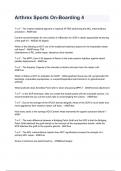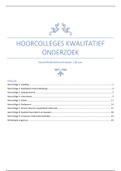Summary
Samenvatting Profielwerkstuk 'Het effect van cafeïne op de concentratie'
- Course
- Level
Profielwerkstuk over het effect van cafeïne op de concentratie. Opgedeeld in 3 deelvragen en een praktisch deel. Het praktisch deel is een testje, in de bijlage zijn de testen terug te vinden en in het pws zelf staan de resultaten van de test. De bijlage bevat ook een logboek. Ik heb een 8,2 gehaa...
[Show more]







